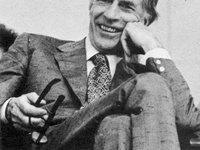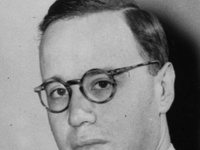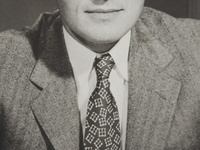ENGAGED TO BE LED
Despite the drama of arrests in the Square, some said that engagement in politics among the student body as a whole was not very deep.
“The campus was considerably less politicized than it is now,” said Britell, who reported on the campaign. “Students didn’t necessarily have strong political viewpoints or have a long list of policy issues that they cared about. They liked [Kennedy] because he was a charismatic figure and he was a shining light.”
The preceding decade had not been one of student activism anywhere in the country, some alumni remembered. In the aftermath of trauma of World War II, many said that the country turned away from politics.
“It was a period of re-adjustment,” Britell said. “It was a period of peace also. Apart from the Cold War, which tended to be more academic than really hit home, people went about their lives.”
The students who were on campus at this time mirrored the rest of the country in this lack of political engagement.
“I would say that the Class of 1960 was more in the relaxed period of the ’50s,” Smith said.
“Looking back on it now, I’m embarrassed and regretful at how removed from it all we were in many ways,” remarked Frederic L. Ballard, Jr. ’63, who also helped cover the campaign for The Crimson. “I wish the temper of the times, I wish the academic culture of the time had been to be more connected with the real world.”
Some alumni said that the faculty were far more interested in the campaign than students were. Several faculty members, including Dean of the Faculty of Arts and Sciences McGeorge Bundy and Professors Arthur M. Schlesinger and John Kenneth Galbraith, went on to join Kennedy’s administration.
“There was more activity among the faculty,” concurred Frank. “I don’t remember a lot of student activity.”
Meanwhile, when Radcliffe students gathered to watch the first debate between Kennedy and Nixon—the first televised presidential debate in history, which is remembered as a seminal moment in which Kennedy displayed his confident, well-spoken demeanor to the nation—the Radcliffe students were not impressed.
According to a Crimson article about the event, several students fell asleep, and one said she would have rather been playing bridge. The writer, Jonathan R. Walton ’63, blamed the low enthusiasm on the fact that “both candidates lack any real flair as speakers.”
“Perhaps the candidates weren’t distinctive enough, or the issues weren’t great enough, or the drama of impending crisis was missing,” Walton wrote.
Yet for the students who did immerse themselves in politics, the 1960 election provided plenty of drama—and in some cases catalyzed a lifetime of political involvement.
Recalling Senator Joseph R. McCarthy’s charges of communism in the government, the Brown v. Board of Education decision and its aftermath, and the widespread fear of a nuclear attack, former Crimson editor Mark H. Alcott ’61 said that the era does not deserve its placid reputation.
“You put that all together and there was a lot of ferment in this period,” he said. “In any case, I think much of that did center on the 1960 election.”
Smith said he agrees that this election made a powerful impact on the youth of the age: “As [Kennedy] said, the torch had been passed to a new generation.”
—Staff writer Julie M. Zauzmer can be reached at jzauzmer@college.harvard.edu.











